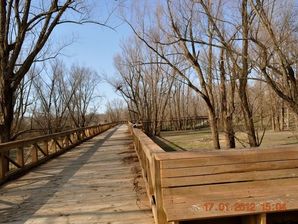Those who have come before
The Delta represents a “melting pot” of diverse cultures. And most of them got here by canoe.
Canoeing is the oldest form of water transportation on the Mississippi River-at least 2,000 years old! In the Quapaw tribal history, they arrived form the Ohio River Valley in canoes-that’s why the tribe became known as “The Downstream People.”
Native Americans
American Indians were among the first people to call this area home. The earliest date back to 9,500 B. C. Numerous Indian communities continued to live off these lands, until the early 1800s. The Cherokee, Osage, Quapaw, Tunica and Koroa Indians are among the most well-known area tribes.
European explorers
Hernando DeSoto was the first European documented to have crossed the Mississippi River.
When he got to the river he was met by an armada of American Indians, 2,500 strong.-all in dugout canoes.
Exploration of the Mississippi River
The Frenchmen Father Jacques Marquette and Louis Joliet traveled down the Mississippi as far as the Arkansas River in 1673. Another French explorer, Rene-Robert Cavelier, Sieur de La Salle, sailed down the river to its delta in 1682. When he got there, La Salle claimed the entire Mississippi region for France.
Immigrants in the Arkansas Delta
Over the years, immigrants came to eastern Arkansas for many reasons. They relied heavily on the Mississippi River to get here and then later for work. Communities often emerged along the banks of the river, which provided a steady source of food and water.
People who help write chapters in the Delta’s remarkable story:
Irish, German, Swiss, Italian, Slovakian, Greek, Lebanese, Chinese, French, African Americans, Lydian
Fighting for control
The river’s coveted resources have sometimes been a source of contention. During the Civil War, for example, armies of the Confederate and Union States fought for control of the river. Helena was occupied by the Union Army from 1862-1865 and the Battle of Helena was fought on July 4, 1863, (the same day as Gettysburg and Vicksburg). There are 27 Civil War interpretive sites in Helena.
For more information, visit the Delta Cultural Center or go to www.civilwarhelena.com
Last stop for the Sultana
In April 1865, with the Civil War over, Union prisoners of war were sent north from Vicksburg The Sultana, overloaded with passengers and suffering from a boiler crack, stopped briefly at Helena. This photo became the last record of the Sultana.
The next day an explosion tore the steamboat apart and, within minutes, the entire boat was in flames.


